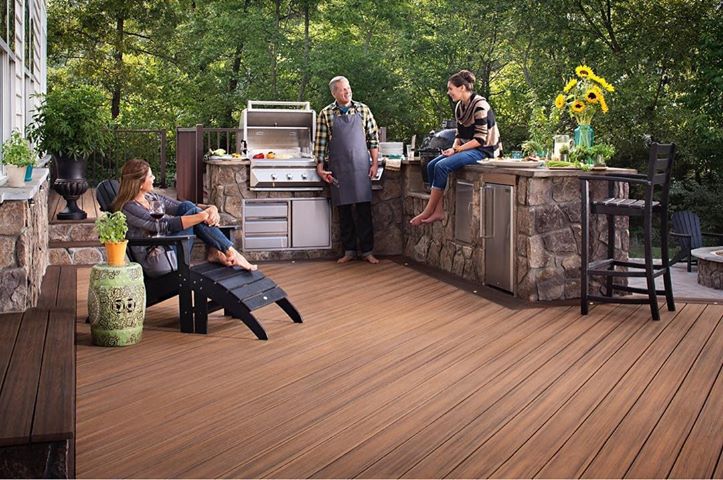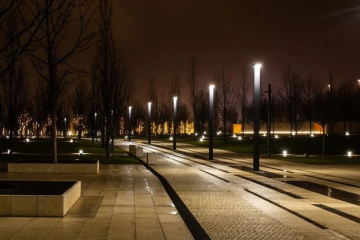When it comes to decking in Melbourne, homeowners are presented with a variety of choices, primarily between composite decking and traditional timber decking. Both options offer unique advantages, but understanding the specifics can help you make an informed decision that suits your home, lifestyle, and budget.
This blog delves into the pros and cons of each, with a special emphasis on why considering timber supplies in Melbourne might be beneficial for your decking project.
Understanding Composite Decking
Composite decking is a modern decking material made from a mix of wood fibres, plastics, and bonding agents. This combination is heated and formed into board shapes that mimic the look of traditional wood. It has gained popularity for its low maintenance, durability, and resistance to rot, decay, and insects.
Pros of Composite Decking
Composite decking offers several advantages that make it an appealing option for outdoor spaces. Here’s a deeper look into the benefits.
- Low Maintenance
One of the key benefits of composite decking is its low maintenance requirements. Unlike traditional wood decking, which needs regular sanding, staining, or sealing to maintain its appearance and integrity, composite decking in Melbourne simplifies upkeep.
- Durability
Composite decking resists the common problems that plague wood decks, such as fading, staining, and scratching. This is due to the materials used in composite decking, which include recycled plastic and wood fibres that provide a hard-wearing surface.
Additionally, it’s resistant to mould and mildew growth, which can deteriorate the wood and require frequent cleaning. For homeowners who want top-quality timber supplies in Melbourne, this deck option retains its aesthetic appeal over time without the worry of unsightly damage or the need for constant upkeep.
- Longevity
The lifespan of composite decking generally exceeds that of traditional wood decking. The materials used in composite decking are engineered to withstand the elements better than natural wood, which can succumb to rot, warp, or splinter over time.
As a result, composite decks can last for decades with minimal maintenance, providing a better return on investment through their durability and longevity. You also need to know how to maintain cedar decking or any decks perhaps.
Cons of Composite Decking:
- Initial Cost:
The upfront cost of composite decking can be significantly higher than that of traditional timber. This might deter some homeowners, especially those working within a tight budget.
- Heat Retention:
Composite decking materials can absorb a lot of heat, especially in full sun, making the deck surface uncomfortable to walk on barefoot during hot weather.
- Less Natural Appearance:
Despite advancements in manufacturing, composite decking in Melbourne still lacks the natural look and feel of real wood. For many, the aesthetic appeal of genuine timber, with its unique textures and variations, is unmatched.
- Expansion and Contraction:
Composite materials can expand and contract more than natural wood with temperature changes. This requires careful installation to allow for movement, which might not be as necessary with some types of timber decking.
- Repair and Color Matching:
If a composite deck board becomes damaged, it can be harder to replace or repair than timber. Additionally, finding an exact colour match can be difficult if the product line changes over time.
The Case for Timber Decking in Melbourne
Timber decking is the traditional choice for many Australian homes, revered for its natural beauty, warmth, and versatility. Timber decking in Melbourne can be made from a range of local and imported hardwoods and softwoods, each offering different colours, textures, and durability levels.
Timber decking, with its natural appeal and flexibility, presents a set of advantages distinct from composite decking.
Pros of Timber Decking:
- Natural Beauty
Timber decking is well-loved for its natural look and feel, which composite decking strives to replicate but can’t fully emulate. The inherent beauty of real wood, with its unique grain patterns and colour variations, adds a warm, inviting aesthetic to outdoor spaces.
- Sustainability
Sustainability is another significant advantage of timber decking, especially when the wood is sourced from responsibly managed forests. Timber is a renewable resource, and when harvested sustainably, it has a lower carbon footprint compared to the production of composite materials, which often involve the use of fossil fuels.
Moreover, wood decking can be recycled or repurposed at the end of its life, contributing to a circular economy. For environmentally conscious homeowners, timber decking offers a way to enjoy outdoor living spaces while minimising ecological impact.
- Versatility
The versatility of timber decking is unmatched. Wood can be easily cut, shaped, and finished to meet any specific design vision, making it possible to create unique, customised outdoor spaces. Whether it’s a curved deck, intricate patterns, or matching architectural details, timber can accommodate a wide range of styles and preferences.
Cons of Timber Decking:
- Maintenance:
Requires regular maintenance, including sanding, staining, or oiling, to maintain its appearance and longevity.
- Durability Concerns:
More susceptible to rot, decay, and insect damage if not properly maintained.
Final Words
The choice between composite decking and timber decking in Melbourne depends on various factors, including budget, maintenance preferences, and aesthetic values. While composite decking offers a practical, low-maintenance solution, the natural beauty, sustainability, and economic benefits of Australian timber supplies make them a compelling choice for those looking to add value and character to their homes.
Ultimately, the decision should reflect your lifestyle, your commitment to maintenance, and your desire to support local industries and environmental sustainability.
Whichever option you choose from Greenhill Timbers, ensure that it aligns with the vision you have for your outdoor living space and the legacy you want to leave for future generations.




